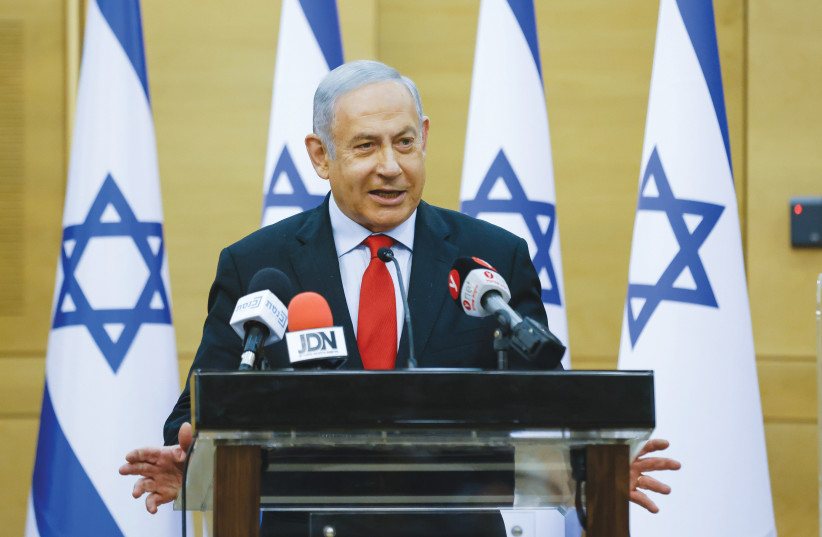For My house shall be called a house of prayer for all. (Isaiah 56:7)
A fair and balanced plan exists to make the Western Wall (Kotel) in Jerusalem a place where all Jews can freely and safely pour out their hearts in prayer. It will take tremendous effort and bold leadership to make that plan a reality. But at a time when divisions are tearing the Jewish people apart, this Kotel compromise would loudly proclaim that all of us matter. If there is a place for all Jews at the Kotel then there is a place for everyone throughout the Jewish State. What a powerful message that would send at this critical time.
The fact is, the agreement was painstakingly negotiated by a group of key Israeli and Diaspora Jewish leaders who spent countless hours over several years hammering out a compromise. Among them were Natan Sharansky, Attorney-General Avichai Mandelblit (cabinet secretary under then-prime minister Benjamin Netanyahu), leaders of the Reform and Conservative (Masorti) movements, the Women of the Wall (WOW) and the Jewish Federations of North America.
With good will on all sides and each side giving up things they wanted, we created a painful but fair compromise that would make the Kotel a place for all Jewish people, from the most liberal to the most orthodox. It never would have come to be without the support of Netanyahu. And yes, the chief rabbis, the rabbi of the Western Wall and the ultra-Orthodox parties all knew the details of the agreement when it was approved 15 to 5 by the Israeli Cabinet in January of 2016.
Then in June of 2017 Netanyahu capitulated to pressure from the ultra-Orthodox parties and canceled the agreement. But, after a long and agonizing wait, this past June the new Israeli coalition government announced that, as soon as they passed the budget, the Kotel agreement would be fast-tracked.

But once again the ultra-Orthodox have incited hate against Reform and Conservative Jews, egged on by now opposition leader Netanyahu in his desperate efforts to cause the broadly-representative Israeli government coalition to collapse.
Nonetheless, polls show that a substantial majority of Israeli and Diaspora Jews want equal rights for Orthodox and non-Orthodox Jews, and for all rabbis of Judaism’s varied streams to be recognized. Jews want the government of the Jewish State to recognize their chosen rabbi’s weddings, divorces, conversions; they want equal funding of synagogues and schools of the varied streams.
Moreover, the failure to treat all Jews equally breeds growing alienation from Israel’s religious establishment and, in Diaspora communities, from Israel itself. The Western Wall compromise will not directly resolve any of these vital issues of religious freedom and equality for non-Orthodox Jews but it will surely help advance those critical goals. Additionally, it is crucial because this site, so spiritually resonant with the holiest site of ancient Israel, has now become a symbol of governmental discrimination against non-Orthodox Jews and against women who wish to pray in accordance with their religious conscience.
An egalitarian prayer space at the Western Wall is not only meaningful to world Jewry but also to the majority of Israelis who do not define themselves as Orthodox. Making space at the Wall for pluralistic Jewish prayer will proclaim that there is more than one authentic way to live a Jewish life of meaning and purpose.
Let’s also remember that the original impetus for this agreement was to solve the escalating conflict between the WOW and the traditional worshipers at the northern plaza of the Kotel. For decades, the Women of the Wall movement, led brilliantly by Anat Hoffman, has been asserting their right to pray out loud with Tallit, Tefillin and Torah at the women’s section. Each month when they pray at their monthly Rosh Hodesh service, gangs of Orthodox men disrupt their gatherings, sometimes with violent attacks against the women as they are praying. Arguably the greatest compromise made in this agreement is that made by the WOW who agreed to move their prayer services to the egalitarian section, thus leaving the northern Kotel plaza as a prayer space solely for Orthodox prayer.
This compromise is good for everyone. The Orthodox will have sole control over the prayer space that they cherish. For the first time, the non-Orthodox will have a dignified space where we can pray without fear of attacks and the WOW will have the ability to pray with freedom and protection.
We heard a loud and clear message from Foreign Minister Yair Lapid when he said recently that, contrary to some recent press reports, he has not given his consent to freezing the Western Wall agreement. Nachman Shai, the diaspora affairs minister, has also clearly stated his strong support along with Finance Minister Avigdor Lieberman. Prime Minister Naftali Bennett supported the project beginning when he was Diaspora Affairs Minister and has consistently reiterated that support.
This is a moment that requires courageous leadership from the politicians of Israel and from the Orthodox world. Yes, in the short term they may take some heat, but in a time of intensifying political and religious polarization, their bold action will long be remembered as a Solomonic solution, teaching all Jews the power of compromise and unity, and fulfilling Isaiah’s bold prophecy.
Rabbi Rick Jacobs is the president of the Union for Reform Judaism (URJ), the largest Jewish movement in North America, with almost 850 congregations and nearly 1.5 million members. Rabbi Jacob Blumenthal is CEO of both the Rabbinical Assembly, the association of all the world’s Conservative and Masorti movement rabbis, and United Synagogue of Conservative Judaism, the major congregational organization of Conservative Judaism in North America, and the world’s largest Conservative Jewish communal body.
